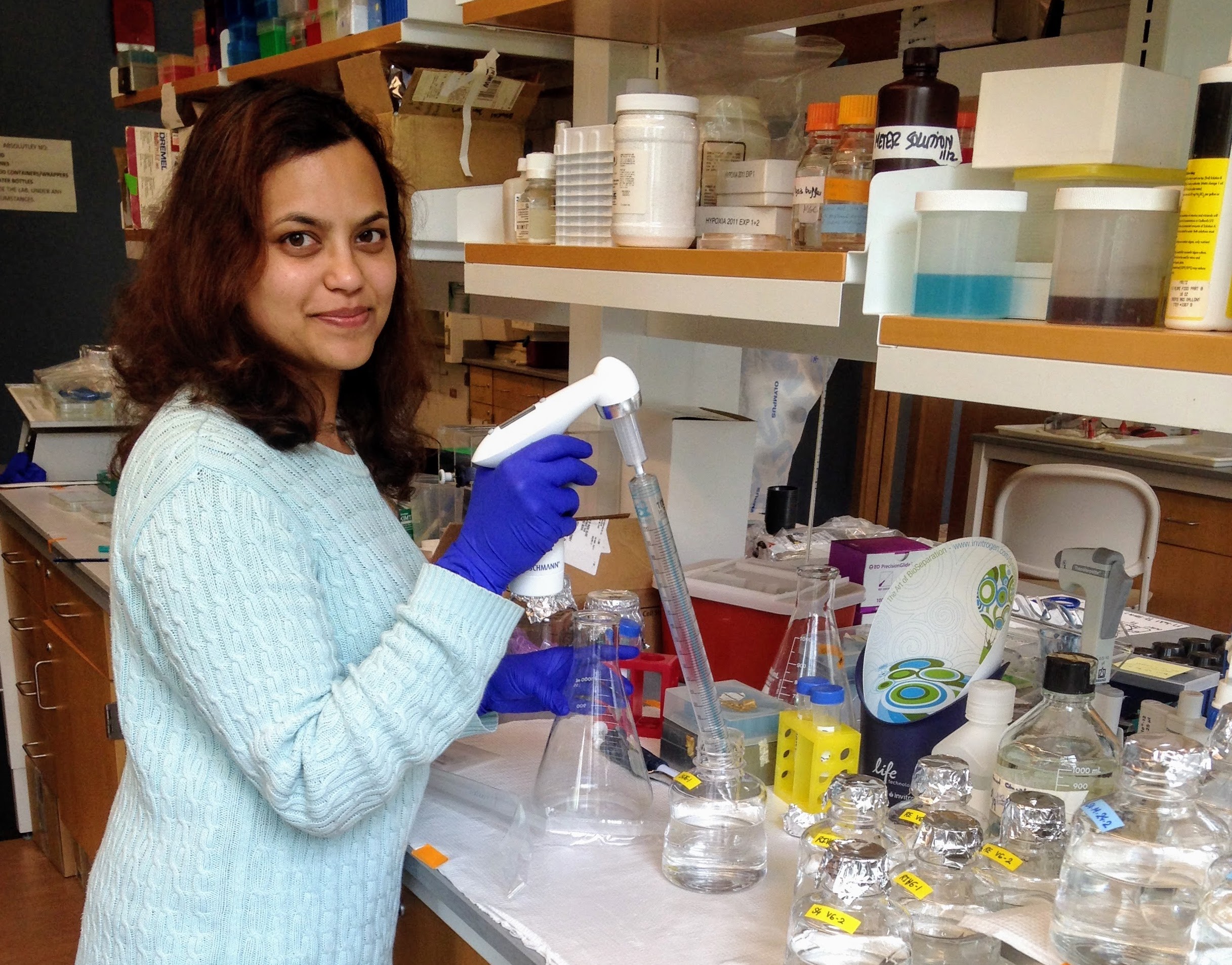I am a biologist with training in diverse fields such as microbiology, molecular biology, immunology, genomics and ecology and evolutionary biology. I received my PhD in Cell and Molecular Biology from The University of Rhode Island. My research experience has focused on a variety of topics such as computational biology, phylogenetics, innate immune mechanisms, comparative genomics, population genetics and epigenetics. With a rise in interdisciplinary research and their boundaries becoming even more fuzzier, I feel fortunate to have had the opportunity to work in a wide array of fields that make my research profile rich and unique.
If you can’t already tell, I am passionate about science and science communication. My first publication was when I was an undergraduate and used computational modeling to understand dynamics of microbial communities and their effects on microbial activity in natural settings. This was what propelled my career in science. The idea of doing biological research through equations and vast amounts of omics data is tremendously exciting to me. I am a certified Data carpentry instructor and use the platform to conduct workshops geared towards data organization and fundamentals of biological data analysis. I also feel the need for science to break out of jargon and journals to reach a broader audience allowing more people to realize the importance of science. I am a contributing author for Oceanbites that aims to make science accessible to everyone one bite at a time.
Besides science I love running, especially outdoors when I can. It is a great way to clear your mind with a bonus of exercise. Try it if you haven’t already! My second love is traveling. I absolutely love visiting new places especially amidst nature. I have visited 17 national parks in the US, 2 in Australia and 1 in India! Besides the top two, I love trying out new recipes. After I defended my PhD, I was just so excited to finally get some extra time that I traveled and cooked to my hearts content! I also paint when I find the rare moment.

